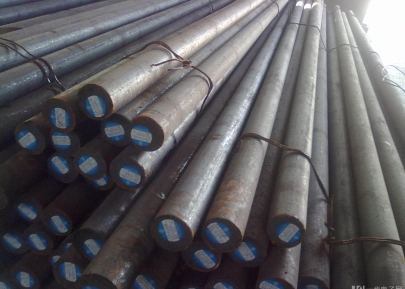Unlocking the Secrets of Die Base: The Essential Role of Mold Steel in Precision Manufacturing
When it comes to precision manufacturing, the die base plays an essential role. This foundational element ensures that the molds created are efficient and effective in production processes. At the heart of many die bases lies mold steel, which has properties that make it suitable for these demanding tasks. This article will delve into the significance of mold steel, particularly carbon steel plates, and how they contribute to the precision manufacturing world.
Understanding Die Bases
A die base is a critical component in tooling systems, often used in stamping, molding, or casting processes. It provides the necessary support and structure for the die components that shape materials into desired forms. The strength and durability of a die base can dramatically impact production quality and efficiency.
The Importance of Material in Die Bases
The choice of material for a die base is crucial. It must not only be robust but also resistant to wear and tear. Commonly used materials include:
- Tool Steel
- Alloy Steel
- Carbon Steel Plates
The Role of Mold Steel in Manufacturing
Mold steel offers a combination of hardness, toughness, and wear resistance, making it an ideal choice for die bases. Manufacturers often choose mold steel for its superior performance in various applications. Notably, carbon steel plates are favored for their exceptional mechanical properties.
Properties of Mold Steel
Different grades of mold steel are available, each with unique properties. Below is a table highlighting some key characteristics of mold steel grades:
| Grade | Hardness (HRC) | Applications | Chemical Composition |
|---|---|---|---|
| P20 | 28-32 | Injection Molds | 0.40% C |
| H13 | 48-52 | Die Casting | 0.40% C |
| S7 | 50-54 | Heavy-Duty Stamping | 0.50% C |
How Mold Steel Affects Precision
Utilizing mold steel in die bases enhances precision during manufacturing. Its high tensile strength and hardness mean molds can withstand high pressures without deforming, a requirement for achieving tight tolerances in production.
Benefits of Carbon Steel Plates
Carbon steel plates serve as a viable alternative in die bases for those seeking a cost-effective yet durable option. The benefits include:
- Cost-Effectiveness: Generally cheaper than many alloy steels.
- Workability: Easier to cut and form, especially when applying techniques like how to cut copper plate.
- Availability: Widely available in various thicknesses and grades, catering to diverse manufacturing needs.
Manufacturing Processes for Die Bases
Creating a die base involves multiple processes, ensuring the final product meets stringent quality standards. The primary steps include:
- Cutting: Precision cutting of steel plates to desired dimensions.
- Machining: Removing excess material to achieve the necessary shape.
- Heat Treatment: Hardening the steel to enhance performance.
- Finishing: Adding surface treatments for corrosion resistance and improved durability.
Common FAQs about Die Base and Mold Steel
What is the best material for a die base?
Generally, mold steel is preferred due to its superior wear resistance and toughness, but cost-efficient alternatives like carbon steel may also be used.
How do I choose the right mold steel grade?
Consider the application requirements, including hardness, temperature resistance, and expected wear, to choose the appropriate grade.
Can I use carbon steel for intricate designs?
Yes, carbon steel can be effectively used for intricate designs, especially when employing advanced machining techniques.
Conclusion
In summary, the role of mold steel and die bases in precision manufacturing is paramount. By selecting the right material, such as carbon steel plates, manufacturers can achieve improved efficiency and product quality. Understanding the properties of these materials and utilizing the correct processes is essential for success in today's competitive landscape. Whether you're cutting mold steel or exploring new production methods, investing in quality components will pay off in the long run.



